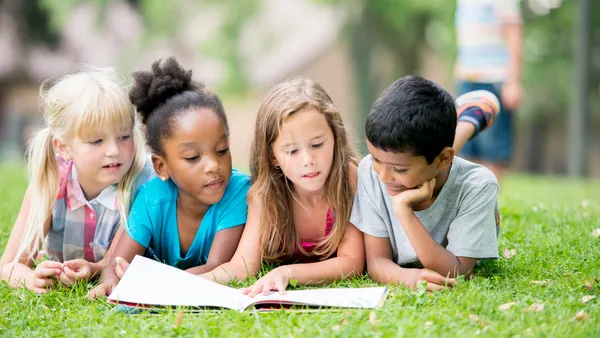Dive Brief:
- Pearl Filak, an 8th grader at Watters School in Jersey City, NJ, is in a social-emotional program called MOSAIC, (Mastering Our Skills and Inspiring Character), and she tells Edutopia the program, which she has been in since the 2nd grade, has given her more confidence as a student.
- One of the cornerstones of MOSAIC is self-regulation, and Filak details watching as other students got into trouble during the school year and deciding that wasn't the path she wanted to take. She ran for student council and ended up on the honor roll.
- Pearl discussed her feelings about the program with her principal and a MOSAIC consultant who works out of Rutgers University’s Social-Emotional and Character Development (SECD) Lab, and her new attitude about learning and the trust she’s developed in her own abilities are attributed to the program.
Dive Insight:
All children need confidence when they enter school. Believing they can master and move forward in their education is crucial to growing as a learner. Not all children feel this way, and supporting pupils as they find their footing is crucial if educators want to see their students succeed beyond what happens in the classroom.
Social-emotion learning (SEL) is an approach that can bring substantial benefits to all children, and help them find faith in themselves and their learning. Any subject dovetails with SEL skills — a method that curriculum designers can stitch effectively into all classrooms.
When considering the social and emotional needs of students, administrators should consider involving families, as well. As a recent story in Education Week addressed, engaging more with parents and caregivers and giving them more of a voice can also bring more insight into the classroom so that all children get the support needed to succeed.











